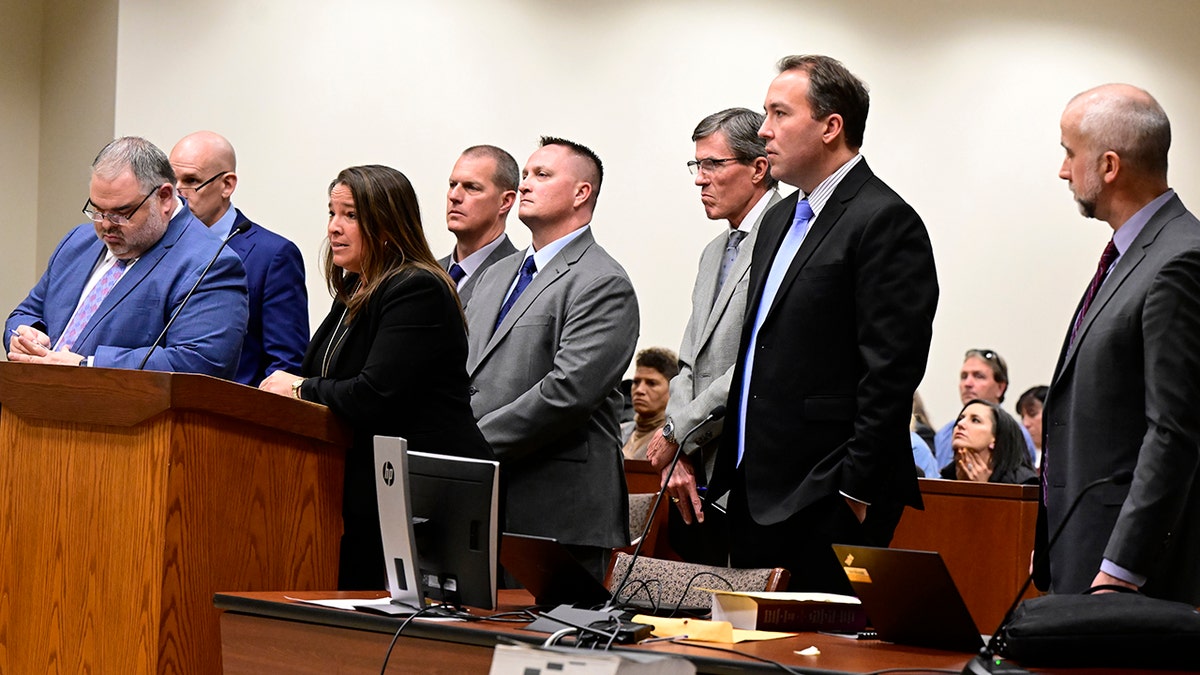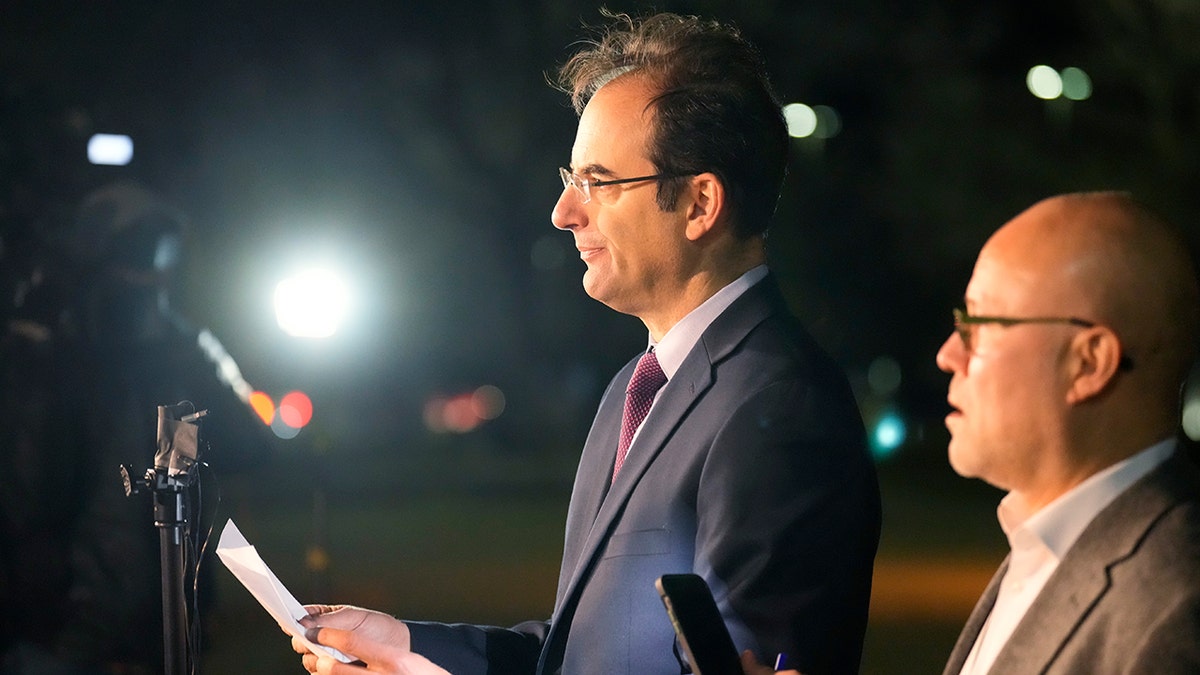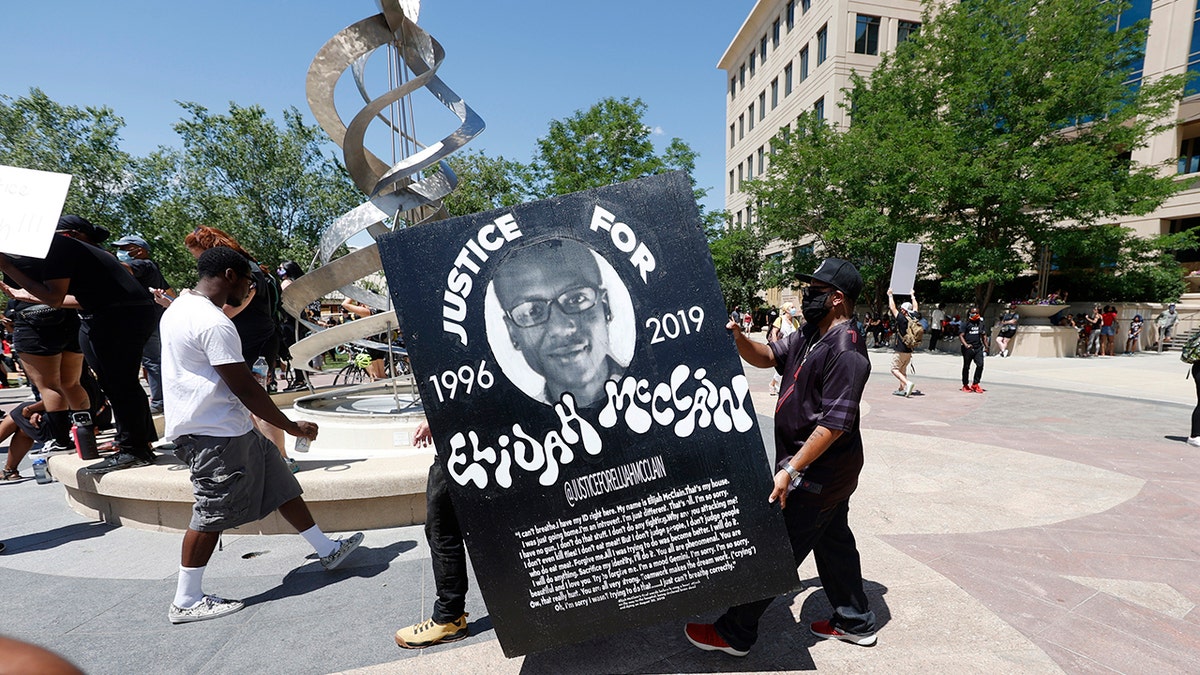Colorado paramedics found guilty in 2019 death of Elijah McClain after ketamine injection overdose
A Colorado jury on Friday convicted two paramedics in the death of 23-year-old Elijah McClain, who was given a lethal dose of ketamine in 2019.
Aurora Fire Rescue paramedics Peter Cichuniec and Jeremy Cooper were found guilty by a jury of criminally negligent homicide.
Cichuniec was also found guilty of second-degree assault through unlawful administration of drugs.
They were both acquitted of assault in the second-degree with intent to cause bodily injury causing serious bodily injury.
COLORADO PROSECUTOR ACCUSES PARAMEDIC OF CAUSING KETAMINE OVERDOSE IN ELIJAH MCCLAIN TRIAL

Defense attorneys argued the paramedics followed their training in giving ketamine to McClain after deciding he had “excited delirium,” a controversial medical condition used to define extreme agitation.
2ND POLICE OFFICER ACQUITTED IN DEATH OF ELIJAH MCCLAIN, WHO WAS PUT IN A NECK HOLD, GIVEN KETAMINE
They also have said prosecutors have not proven that the sedative is what killed him.

The outcome could set a precedent going forward for how emergency personnel respond to situations with people in police custody, said University of Miami criminologist Alex Piquero.
CO POLICE OFFICER TESTIFIES IN ELIJAH MCCLAIN TRIAL, CLAIMING HE FEARED FOR HIS LIFE DURING ENCOUNTER
“Imagine if you’re a paramedic,” Piquero said. “They could be hesitant. They could say, ‘I’m not going to do anything’ or ‘I’m going to do less. I don’t want to be found guilty.’”

The trials stem from an Aug. 24, 2019 incident, after McClain purchased iced tea from a corner store and was walking home when police confronted him.
After a police office claimed that McClain reached for an officer’s gun, an officer put him in a tight neck hold that caused him to go unconscious.
Officers also pinned down McClain before Cooper injected him with an overdose of ketamine.

After being injected, McClain had no pulse in the ambulance, went into cardiac arrest and died Aug. 30, 2019.
Cichuniec was the senior officer and said it was his decision to use ketamine.
The Associated Press contributed to this report.
Read the full article here






